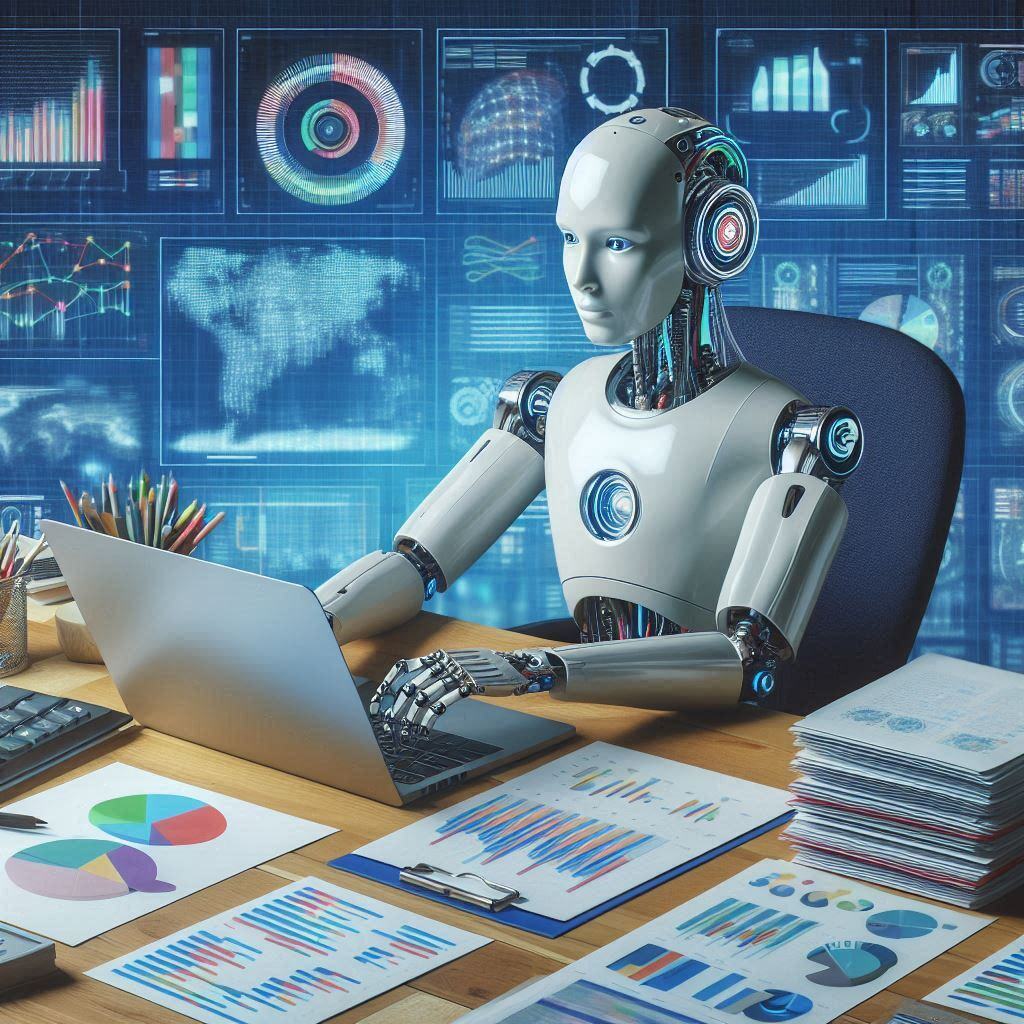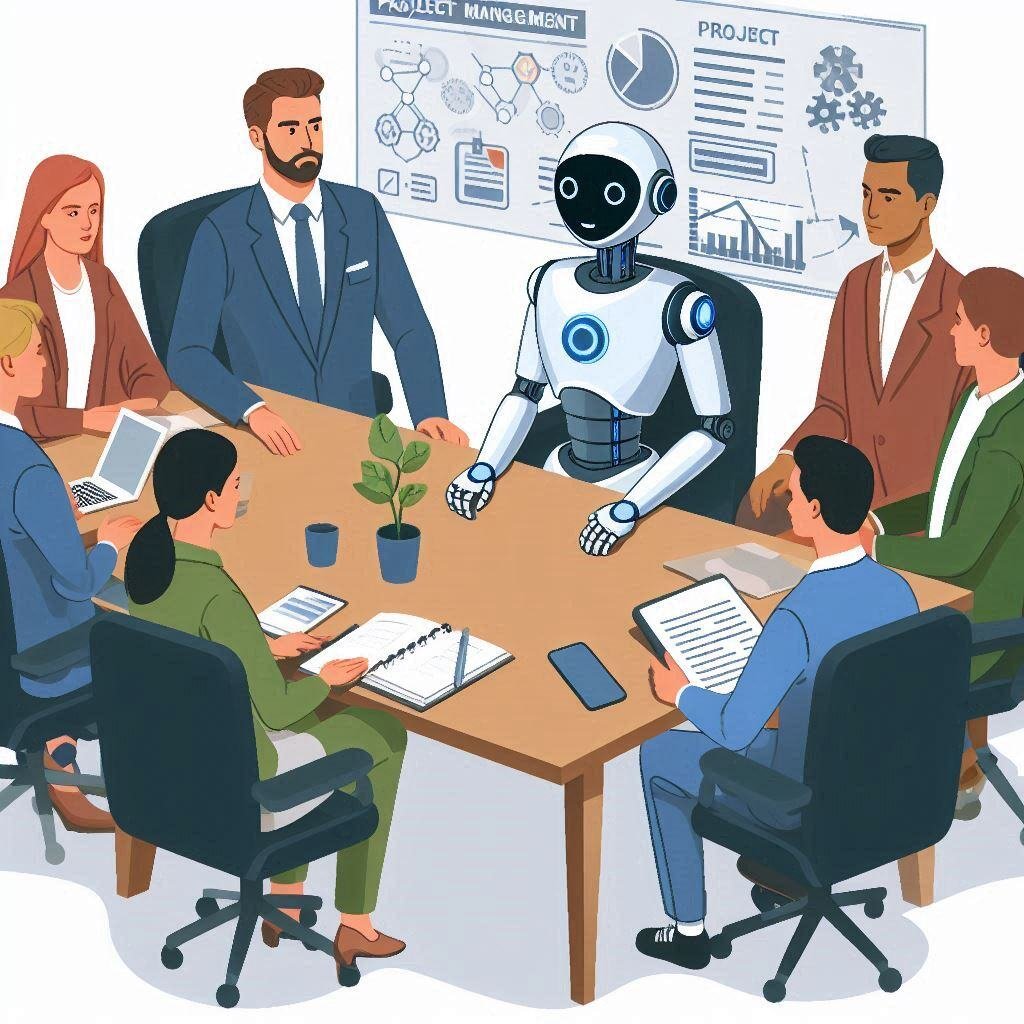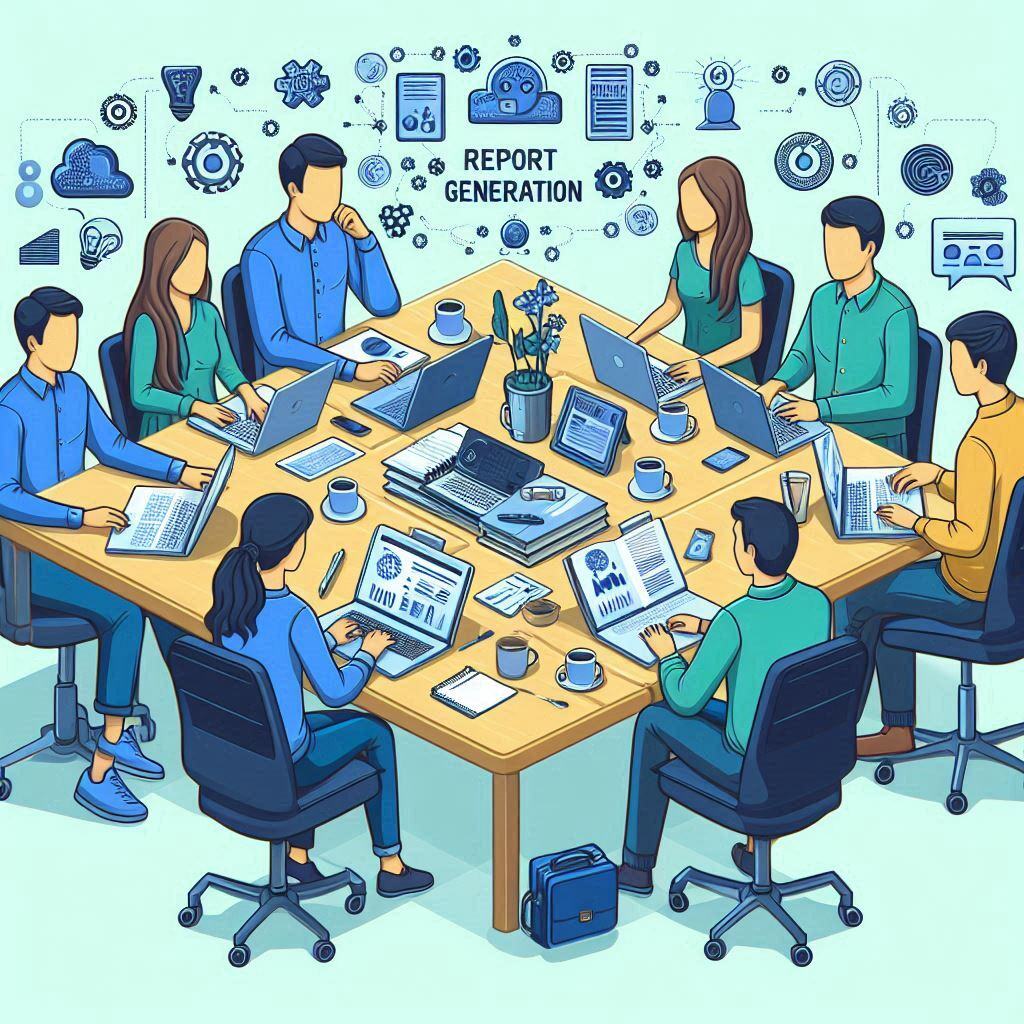Will AI Replace Data Analysts?
Artificial Intelligence (AI) has rapidly transformed industries, offering solutions that streamline tasks, improve accuracy, and enable new insights...
AI isn’t replacing HR reps; it’s enhancing productivity by automating tasks, enabling HR to focus on strategic employee engagement.
With the rapid rise of artificial intelligence (AI) in the workplace, many HR professionals are concerned that their roles are at risk of being replaced by machines. It’s easy to see why. AI tools are increasingly being used to handle repetitive administrative tasks and analyze data more efficiently than a human ever could. However, the reality is quite different: AI is not here to take over HR roles, but to elevate them. Instead of replacing HR reps, AI is helping them focus on what they do best—building strong relationships, improving company culture, and making strategic decisions that impact the entire organization.
In this article, we’ll explore why AI is not a threat to HR jobs, how it’s actually making HR roles more valuable, and why HR professionals can look forward to a future where AI is their most powerful ally.
The fear of AI taking jobs is not new. Over the past few decades, we’ve seen similar concerns with the rise of automation in manufacturing and the advent of computers in office work. But history has shown that technology tends to transform jobs rather than eliminate them.
According to a report by McKinsey, AI could automate up to 70% of repetitive tasks currently performed by HR professionals. This includes tasks like scheduling, resume screening, and handling basic employee inquiries. While that may sound alarming at first, the reality is that these are tasks that most HR reps find time-consuming and unfulfilling. By automating these processes, AI frees up HR professionals to focus on more strategic initiatives that require creativity, empathy, and human judgment.
One of the biggest benefits AI brings to HR is efficiency in the recruitment process. AI tools like applicant tracking systems (ATS) can sift through hundreds of resumes in seconds, identifying the best matches based on predefined criteria. This not only saves time but also reduces human bias in the initial screening process.
AI doesn’t just stop at screening. Chatbots can handle preliminary communication with candidates, answering their questions and setting up interview times. This means that HR professionals can spend more time engaging with top candidates, rather than getting bogged down in paperwork.
Example: Large companies like Unilever and IBM have already incorporated AI into their recruitment processes. They use AI to conduct initial interviews through video platforms that analyze body language, word choice, and other cues to assess candidate suitability. While AI handles these technical aspects, human HR reps still lead the final decision-making and relationship-building stages.
AI’s ability to analyze data and monitor engagement levels in real time is a game-changer for improving employee satisfaction. Many companies use AI tools to send out surveys, analyze responses, and identify patterns that indicate issues like low morale or burnout. With this data, HR can take proactive steps to address these issues before they escalate.
AI in Action: Tools like Microsoft Viva and Peakon help HR teams keep a pulse on employee engagement by analyzing communication patterns, survey responses, and even social media activity (for public profiles). They can suggest action plans to improve team dynamics, optimize work-life balance, and tailor career development plans to individual preferences.
One of the most exciting developments in AI is its use in personalizing employee learning and development. Instead of offering generic training programs, AI can create tailored learning paths based on an employee’s strengths, weaknesses, and career aspirations.
For instance, AI can recommend courses, webinars, or even mentorship opportunities based on an employee’s performance metrics and feedback from managers. This level of personalization keeps employees engaged in their own development and increases the likelihood that they’ll stay with the company longer.
Example: IBM’s Watson is being used in HR departments to match employees with personalized training programs. The AI looks at everything from skill gaps to career aspirations and creates a custom curriculum designed to fast-track employee growth.
AI can also be a valuable tool in promoting employee well-being. Tools like AI-powered wellness platforms can track employee stress levels and suggest activities to promote relaxation and mental health. For example, an AI might recommend a meditation session to an employee who has been logging long hours or suggest taking a break after back-to-back meetings.
Real-World Impact: Companies like Humana and BP have adopted AI wellness tools that send reminders to employees to take breaks, get up and stretch, or even check in with colleagues. These small interventions can make a big difference in preventing burnout and promoting a healthy work-life balance.
By handling routine tasks and providing data-driven insights, AI allows HR professionals to shift their focus to strategic initiatives like workforce planning, talent management, and organizational development. This shift transforms HR from a largely administrative function to a strategic partner within the company.
A report by Deloitte found that 41% of companies have redesigned their HR functions to include AI tools. The result? HR is no longer seen as just a support function but as a key player in driving business outcomes.
Despite its many capabilities, AI still falls short in areas where emotional intelligence and human connection are required. HR professionals bring empathy, intuition, and relationship-building skills to the table—qualities that are crucial for resolving conflicts, mediating difficult conversations, and fostering a positive company culture.
Let’s take a look at a few scenarios where AI can support, but never replace, human HR reps:
Rather than fearing AI, HR professionals should view it as a powerful tool that can amplify their impact. Here are a few reasons why:
AI is transforming the way HR operates, but it’s not replacing the human element. Instead, it’s taking over mundane tasks, allowing HR professionals to focus on more rewarding and impactful work. The future of HR is not one where machines take over but where humans and AI work hand-in-hand to create better workplaces and more satisfying careers.
So, to answer the question, “Are HR reps being replaced by AI?”—absolutely not. In fact, AI is making HR roles more valuable, engaging, and strategic. Rather than taking jobs away, AI is helping HR professionals thrive and creating opportunities for growth and development that weren’t possible before.

Artificial Intelligence (AI) has rapidly transformed industries, offering solutions that streamline tasks, improve accuracy, and enable new insights...

The rapid rise of artificial intelligence (AI) has raised a lot of questions across various industries. One of the most frequently asked questions is...

Are you drowning in data, struggling to create insightful reports? AI report generators are transforming how businesses analyze information and...
Start your journey with Integrail

Try AI Studio by Integrail FREE and start building AI applications without coding.

NEW White Paper: Discover how AI Studio accelerates your workflows